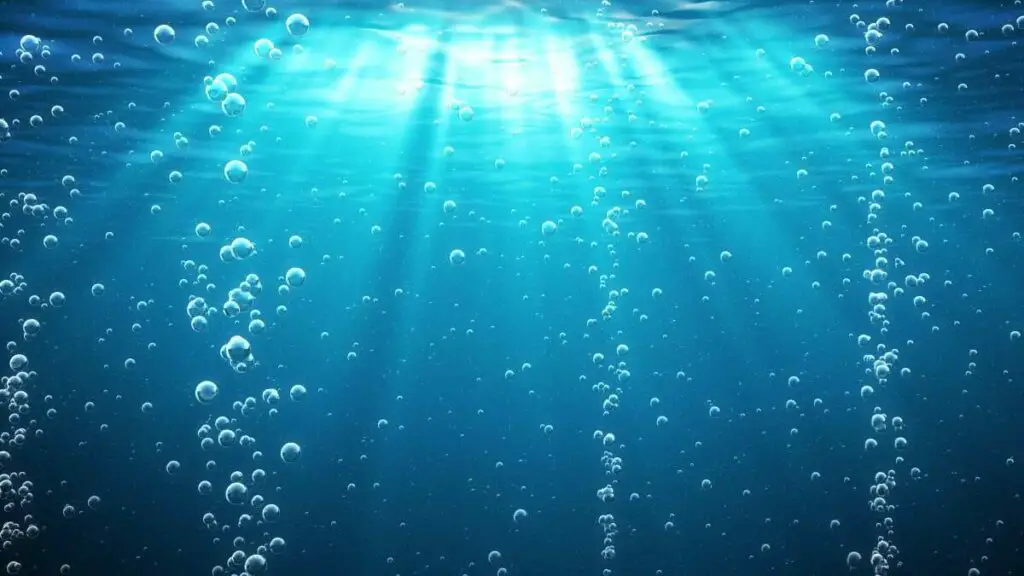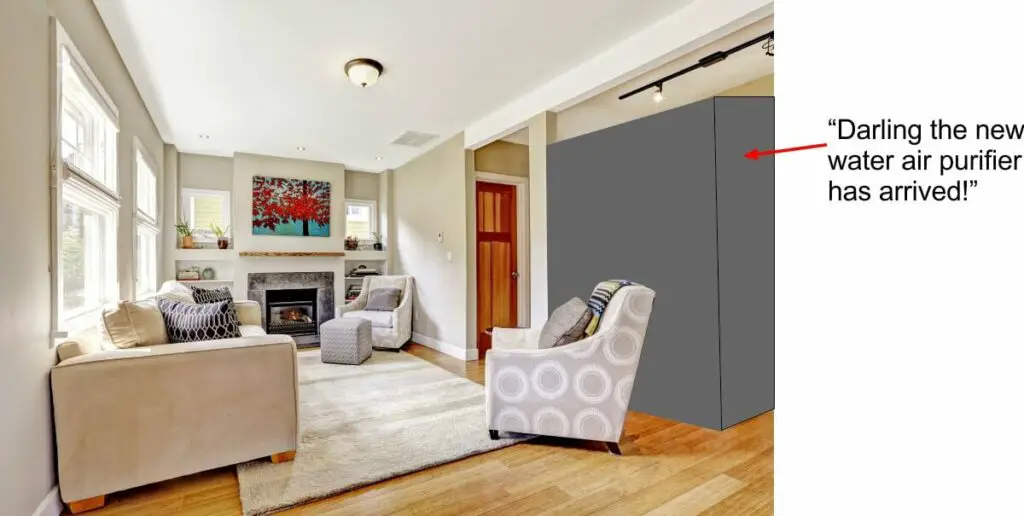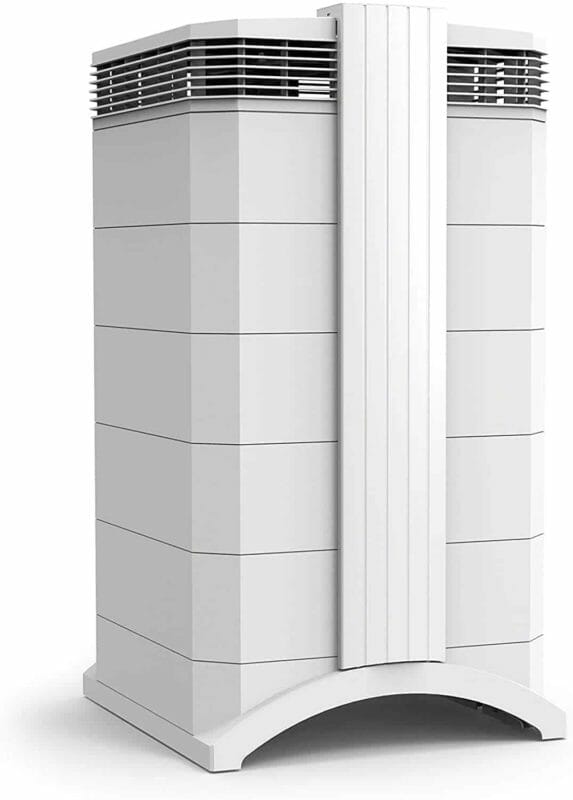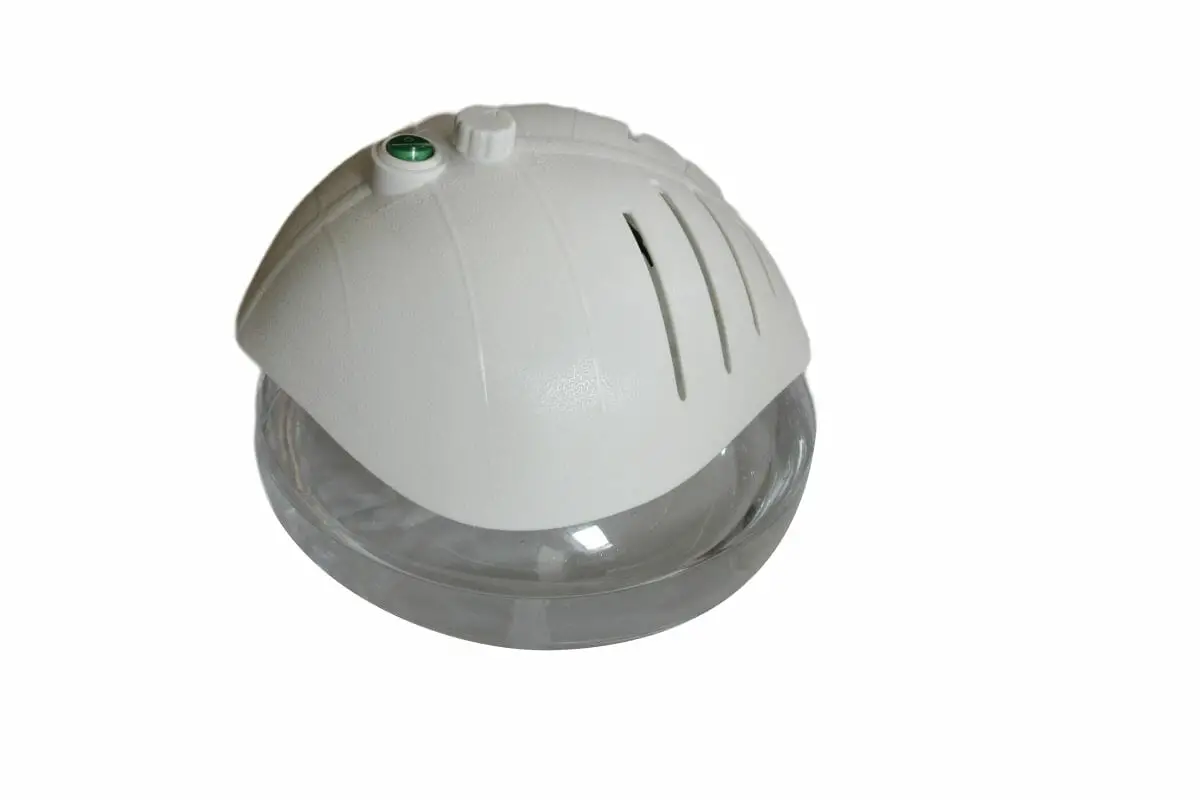Water based air purifiers are an attractive idea to improve your home’s air as they do not need filters. So there is not the expense of buying filters nor the inconvenience of having to remove the old filter and fit the new one. But should you really buy one?
A water air purifier is one that mixes water with air with the aim of reducing pollution. The problem is that they do not work to remove particle pollution that is harmful to human health. To show this I provide experimental evidence and video of particle counts.
So the sales message is “Buy this cute looking machine with coloured lights for $50, never have to buy filters as your do with a conventional air purifier. Just fill it with water, switch it on and your air pollution problems are solved.” Sound too good to be true?
Remember, at the serious end of the air purifier spectrum the proposition is “Buy this $800 machine, then spend $200 per year on electricity and filters. It is guaranteed to remove particles down to 3nm and so remove ultrafine particles”-(an example of this is the world’s best consumer air purifier reviewed in this article).
Ultrafine particles have been shown by numerous studies to be present in our air and can enter our bloodstream. They have also been found in human brains. Please read this article explaining the health issues with particles in the air even at levels below the EPA limits, ie in non-polluted areas. You will find it eye opening and it may turn out to be important for your long-term health.
So if water air purifiers do not work then having them on the market is potentially lulling some people who have brought them into a false sense of security. These people wanted to reduce their air pollution, but they were sold something that does not work. The evidence suggests that their long-term health will suffer even though they tried to protect themselves.
I could not find any good evidence about the effectiveness of water-based air purifiers and so I brought a standard model from a large retailer and tested it. Here is what I found:
Water Based Air Purifiers do Not Work-3 experiments show this
Here is a video of what was sold to me as a water based air purifier working –
I put it in the smallest room I could find to give it the best possible chance of making an impact on the particle count in the air. The room was 120 cubic feet, which would be equivalent to a room of 5 feet by 3 feet in a standard house with 8 foot ceilings. As you can see, this is a fairly tiny room. So even if a device does not purify much air it would have the best possible chance of making some impact in such a tiny room. I used a Trotec PC 200 to measure particles of 0.5um.
The door of the room was closed and the air allowed to come to equilibrium over 13 minutes. Then the plug was remotely activated via a smart plug without entering the room. This was repeated several times to ensure reproducibility.
Here is a graph particle count versus time the purple box shows when the water based air purifiers was working-

As you can see, there is absolutely no evidence of any effect on particle count. This is in contrast to the dashed purple line which is how the particle count should respond with an air purifier just meeting the EPA’s recommended standard.
In the second experiment I collected data from the Trotec PC 200 which measures large and fine particles and a TSI P-Trak 8525 particle counter which counts ultrafine particles with a diameter of 2 nm to 100nm.
Usually if you put a meter at the outlet from an air purifier, you see very few particles in the air coming out of the air purifier So I tried another experiment where I put the air quality sensor at the outlet from the water air purifier.
Here is a video of the recordings –
So I found no evidence that these devices remove particles from the air. This would include all the airborne particles that we expect and need air purifiers to remove-
- Allergen
- Pet dander
- Dust mites
- Mold spores
- Pollen
- Dust particles
The only technology that efficiently removes particles is a true HEPA filter or better.
Neither am I aware of any evidence that this type of water based machine removes volatile organic compounds as an activated carbon filter does in most conventional purifiers. So they will have no effect on odors.
So unfortunately this type of machine does not significantly improve indoor air quality.
Other indications that water air purifiers do not work
1)The major manufacturers of air purifying equipment do not sell water based air purifiers into the consumer market
Here is a list of well-known air purifier manufacturers you do not sell based air purifiers –
- iQair
- Orsani
- BlueAir
- Dyson
- AirMega
- Medify
- GermGuardian
- Honeywell
In fact, I do not know the single reputable air purifier manufacturer sells water-based air purifiers.
2) Major testing/review sites do not review water air purifiers
Consumer Reports and Wirecutter do not bother to review these types of air purifiers.
3) The Environmental Protection Agency does not mention water based air purifiers at all
They do not seem to consider them as even being in the ballpark of potentially effective for the consumer. There are other technologies that they mention only to say that they are not very effective. They do not even mention water based air purifiers is a possible way of purifying air.
Growth of Bacteria or Fungi in the Water May be Dispersed Into Your Air
Bacteria that may be found in drinking water include Escherichia Coli, various species of Salmonella as well as many others. Some protozoa are also found in tap water such as Giardia Lamblia, Cryptosporidium and some others.
So the tap water that you put into the air purifier is not necessarily sterile in the first place. Also, bacteria may be introduced into the water from your skin when you handle any parts of the purifier that are in contact with the water.
Microorganisms exhibit exponential, ie explosive growth. Depending on the conditions of temperature and nutrient available, this doubling period can be as short as 20 minutes. So every 20 minutes they will double their numbers ie increase 8 fold every hour. Of course the conditions in your air purifier will not be so good that they will be doubling in such a short period. However, it illustrates the point that the water quality in your purifier will gradually deteriorate.
You could reduce this by filtering the water before putting it into the purifier. Also, being careful not to touch the insides of the purifier where they will be in contact with the water will help.
If the water is left for some time and grows micro-organisms, then these may be dispersed into the air.
Can you filter air through water? Is water air filter better than a HEPA filter?
You can certainly push air through water but this will not reliably remove either particles or chemicals from it. This is because the particles in the air in the bubble that does not come into contact with the water at the edge of the bubble will be unaffected. Most of the particles will not come into contact with the edge as they will constantly collide with air molecules in the air which will effectively hold them in the bubble.

Let’s call this the “bubble edge effect” which limits water filtration of air. Also, even with a HEPA filter which is almost perfect at removing particles to purify the air in a small room of 100 sq ft, 65 cubic feet per minute of air needs to be processed by the air purifier. Now only the at the edge of the bubbles can be purified by coming into contact with the water. Probably less than 10% of particles in the air in the bubble will come into contact with the water at the edge of the bubble during its passage through the water.
So 650 cubic feet of air per minute or about 10 cubic feet per second will need to be forced through the water! Imagine a cube of air 3 feet by 3 feet by 3 feet being forced through a tank of water each second. It would need a relatively large tank of water in our small room and a powerful pump consuming much more electricity than a fan in an air purifier. The humidity in the air would be very high from the air exiting the water, probably high enough for fungus to grow in the room. The noise from the pump and water being forced through the water at such speed would be uncomfortably high in this small room.
If only twice as much water was needed in the tank as there was air going through it in one second, then the tank would take up at least 3’ x 3’ of the surface area of the room and be 6 feet high. So it would be huge and really impinge on the room. If you have a larger room, you would need an even larger tank.
Here is the interior design effect-

Not exactly a portable air purifier, and because of its size construction needed and the powerful pump needed, it would be expensive. Contrast this vast size to the size of the air filter below which is 12″ x 12″ x 3″ and filters out 99.97% of particles, there is no guarantee a water based filter this size would even hit 90%.
Bacteria would also tend to grow in the tank, and the water would need changing as outlined above.
So an even moderately effective water air purifier is never going to be a practical proposition, and this explains why no reputable air purification manufacturer markets a water air purifier for domestic use.
It also gives you some insight into how inadequate the things that are currently sold as water air purifiers really are. It is not surprising that for the one I tested I found that it made no difference to the particle count in a tiny room.
So, is a water filter better than a HEPA filter? A water filter is not efficient at all at removing particles whereas a HEPA filter is very efficient.
Is There an Effective Water Air Purifier on the Market?
An air purifier is a device that removes particles from the air that harm human health, this cannot be done efficiently using water. So there is not a true air purifier that uses water. There are devices manufactured that are sold as “water air purifiers” but they are ineffective at removing airborne pollutants that harm human health.
Water Based Air Revitalizers
These do not purify the air. Neither do they significantly humidify the air. If you have dry air and you want to add moisture to your indoor air you will need a humidifier. Rather confusingly one form of humidifier is sometimes called an “air washer”. I have written an article about humidifiers here.
Do Water Air Purifiers Really Work?
As a whole there is no evidence that water air purifiers work. They do not reduce the particle count in the air significantly in experiments. No reputable manufacturer produces one for use in homes. Reliable review sites do not review them, for instance, Consumer Reports and the New York Times’s Wirecutter. The EPA does not mention them.
They are based on something that sounds plausible, that is “washing air with water”. So some manufacturers make and market them to the public. The people who buy them then may believe that they are safe from pollution. So they do not take effective measures to reduce their exposure such as buying a proper HEPA air purifier. These people will then be exposed to air pollution and the studies show some will suffer serious adverse health effects.
There should be legislation to ban all air purifiers that cannot reduce particle count to the recommended level set out by the EPA to protect the public.
Related Questions
See Also
The iQair HealthPro Plus. The best air purifier in the world for many years. This article will give you an idea of the “state of the art” in air purifiers. I have written and extensive review here outlining how it works and what makes it so special. I have also listed its range of accessories which is unparalleled.


